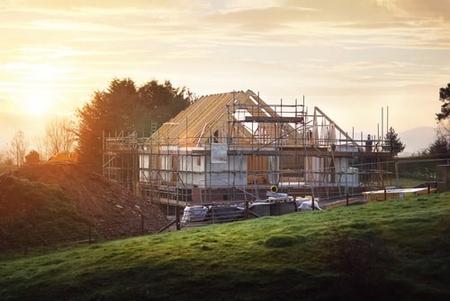Understanding Different Types of Real Estate Construction Contracts
 There are multiple different situations where construction may be performed on real estate property. Homeowners may plan to make improvements or renovations to their homes, or a person may plan to build a new home after a residential real estate purchase. Real estate developers may plan construction on commercial real estate property, either by making improvements to existing buildings or adding new buildings that can be leased to commercial tenants. Construction projects can be complicated, and the parties involved in these projects will need to make sure they understand their rights and obligations as they enter into construction contracts. By understanding the types of contracts that may be used in these projects, property owners, developers, and contractors can determine the best options that will protect their rights and interests.
There are multiple different situations where construction may be performed on real estate property. Homeowners may plan to make improvements or renovations to their homes, or a person may plan to build a new home after a residential real estate purchase. Real estate developers may plan construction on commercial real estate property, either by making improvements to existing buildings or adding new buildings that can be leased to commercial tenants. Construction projects can be complicated, and the parties involved in these projects will need to make sure they understand their rights and obligations as they enter into construction contracts. By understanding the types of contracts that may be used in these projects, property owners, developers, and contractors can determine the best options that will protect their rights and interests.
Terms of Construction Contracts
The contracts used during construction projects will typically fall into one of the following categories:
- Fixed-price/lump-sum contracts - A contractor may submit a bid in which a total amount will be paid for a construction project. While this may allow contractors to maximize profits if they are able to complete the project under budget, it can result in losses due to miscalculations, errors made during construction, or unexpected costs.
- Cost-plus contracts - A property owner or developer may agree to pay for the actual costs of construction, as well as an additional amount that will allow the contractor to make a profit. These contracts allow for more flexibility if changes need to be made during a project or if unexpected expenses arise.
- Time and materials contracts - A contractor may be paid for the materials used during a construction project, as well as an hourly rate for the time they have worked. While these contracts allow for modifications as needed, they require detailed tracking of time, and they can sometimes be inefficient.
- Unit price contracts - A project may be divided into several phases or components, with different prices being established for different types of work. This may make it easier to make changes or additions while a project is ongoing.
- Design-build contracts - This type of contract will combine the design of a construction project with the actual work being performed. This may be a good solution if a single contractor will be providing architectural designs and ensuring that work is completed properly.
- Guaranteed maximum price (GMP) contracts - An owner or developer may wish to ensure that the total cost of a project will not exceed a certain price. These types of contracts may lead to increased risk for contractors, and they are typically used for projects that involve repeat work with a low possibility of delays or unexpected costs.
Contact Our DuPage County Real Estate Construction Contract Lawyers
At Stock, Carlson & Asso. LLC, we have represented in multiple types of real estate transactions and development projects. With our understanding of real estate law and contract law, we can help draft and negotiate construction contracts that will protect the rights and interests of the parties involved. Contact our Wheaton real estate attorneys at 630-665-2500 to arrange a consultation and get legal help with issues related to construction contracts.
Sources:
https://www.levelset.com/blog/construction-contracts-5-main-types/
https://constructionblog.autodesk.com/construction-contracts-types/
https://www.webuildpeoplesdreams.com/residential-construction-contract-types/

 630-665-2500
630-665-2500







